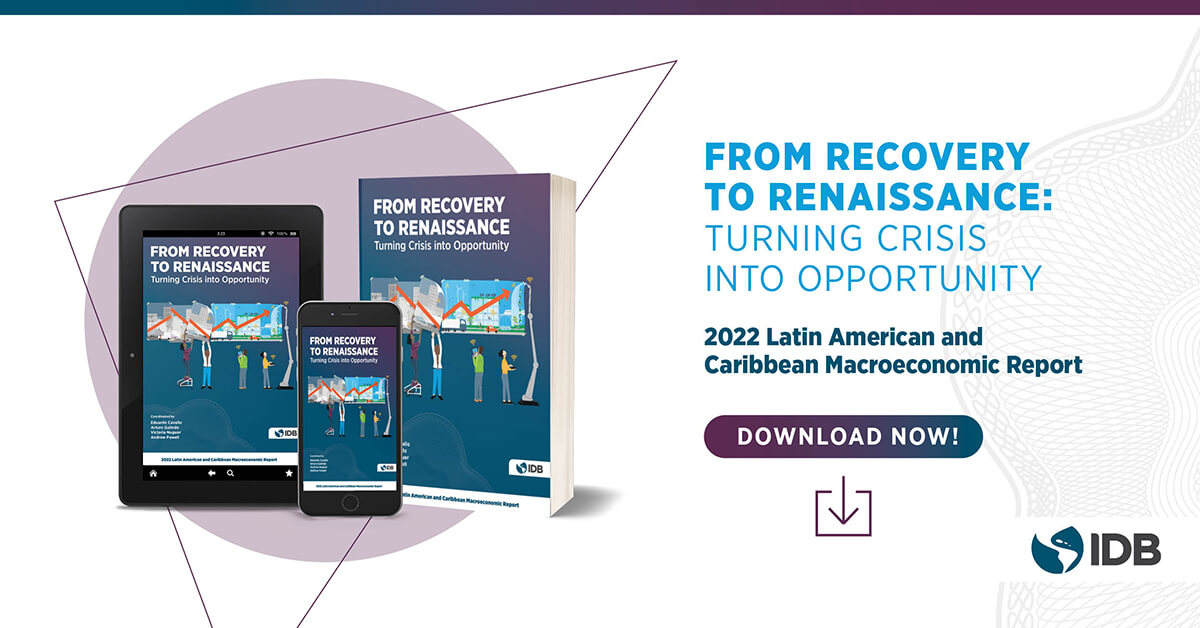
Inflation in Latin America is currently running at its highest level in 15 years. With uncertainty about how it will unfold, the expectations of people and firms are largely de-anchored, meaning distinct from the central banks’ target levels, and thus a potential source of even greater inflation. Meanwhile, as world interest rates rise, countries in the region are finding it more costly to meet their debt obligations.
This is worrisome, and not altogether unlike the crisis of the 1980s and 1990s. The good news is that, as the region’s history has shown that central bank independence, their effective communication with the public, efforts to make government finances sustainable, and close fiscal and monetary coordination can alleviate the crisis and help navigate the region back to safe shores.
To understand how this can happen, consider events surrounding the debt crisis of the 1980s, also known as the Lost Decade, and how they shed light on today’s situation.
How a Foreign Shock Contributed to the Debt Crisis of the 1980s
The crisis of the 1980s had its origin in the 1970s when oil price increases driven by an Arab-OPEC embargo shook the world economy. Price shocks affected the region’s combined current account deficits, which grew by 400% from 1973 to 1975, and the external public debt increased sharply. By 1978, debt service obligations were at their highest level ever.
By 1979, oil prices had quadrupled and inflation ramped up, triggering an increase in world interest rates. The US federal funds rate (the Federal Reserve’s target interest rate) rose to 20% in 1980, increasing Latin America’s debt service obligations. By 1982, high unemployment, falling per-capita income, and dwindling growth had translated into unsustainable debt and default in several countries.
Sixteen countries in the region rescheduled their debts. International credit became limited, and fiscal rearrangements meant covering deficits through the printing of money. The average inflation of 11 countries in the region stood at 70.5% in 1983. By 1985, it had reached an astounding 1,129%. The region had become trapped in a spiral of high chronic inflation.
Then by the last five years of the 1990s, average inflation fell to 13.2% and from 2000-2020 it stood at 5.5%—a major accomplishment. How was this possible?
A Change in the Institutional Framework Increased Credibility and Helped Fight Inflation
If the crisis negatively affected the region’s development, it also caused officials to reflect on the sustainability of current policies. On the monetary front, heterodox policies, including price controls, the scaling back of wage indexations, and exchange-rate pegs, contributed to initial efforts to stabilize inflation, even if these were not sustainable over the long term. Macroeconomic stabilization really came about when several governments passed reforms that granted independence to central banks and established changes in their operational and institutional framework, leading to substantial inflation reduction in the 1990s.
Five countries had adopted an inflation-targeting regime by 2002. This as noted by former US Federal Reserve Chair, Ben Bernanke, “anchors expectations more rapidly and durably relative to other strategies”. An inflation-targeting regime establishes a nominal anchor to the inflation rate. The private sector’s predictions become relevant, because inflation reflects their expectations. Because of this dynamic, central banks in the region sought to anchor expectations by maintaining their autonomy and communicating effectively with the public, and by 2020, inflation in countries operating under this regime stood at an average of 3.3%.
Learning from the Past to Mitigate Inflationary Risks
Today’s economic context is in some ways reminiscent of the 1980s and 1990s. Accelerating inflation – triggered by pent-up demand, supply change disruptions and now the rise of commodity prices (including oil prices due to the war in Ukraine) – is being tackled through rising world interest rates. Increases, like those in the United States, make it more expensive for countries to meet their debt obligations.
The federal funds rate has risen for the first time since 2018, rising 150 basis points (b.p.) since March 2022, with additional increases ahead this year. So far in 2022, Chile has raised its rate by 500 b.p., Colombia by 300 b.p., and Mexico by 225 b.p. This will continue if inflation persists, but there are things central banks can do to anchor inflation expectations—and thus inflation—in this context of high uncertainty.
As the IDB’s 2022 Macroeconomic Report shows, the region can again turn crisis into opportunity. On the fiscal front, countries that export commodities can consolidate their finances and offset the debt that grew during the pandemic through the increase in raw material prices. While commodity importing countries may experience a negative fiscal shock, they can push through meaningful reforms that improve the efficiency of spending and tax systems and lead to more rationalized subsidies that avoid feeding into persistent inflation effects.

Central banks seem to have left behind the old practice of public financing. This crisis should not involve a setback. Keeping inflation expectations anchored reduces the cost of financing and makes portfolio investments in government bonds more attractive.
Inflation expectations are de-anchored by 4p.p. higher than the upper bound. Uncertainty may keep them high in the short term. But they show slow convergence to the target in the longer term, and central banks should endeavor to lower them in the medium term. De-anchored expectations could feed into firms’ pricing decisions, and ensuring well-anchored expectations today could make the effort to reduce inflation less costly on output.
Central banks face similar challenges as they did 40 years ago. However, past efforts to build strong institutions may well pay off in navigating the crisis more smoothly than before. Efficient communication helps to limit market volatility. Constitutional autonomy helps maintain credibility and anchor expectations. Ensuring a sustainable path for government finances to complement a credible monetary framework, through consistency between fiscal and monetary policies, is critical.


Leave a Reply